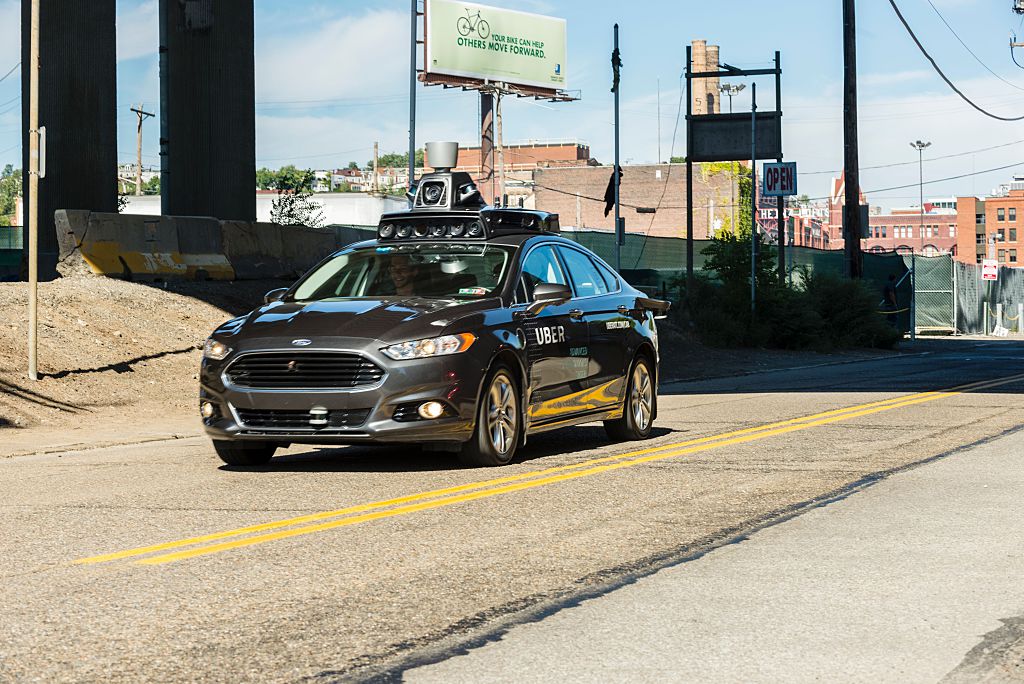Driverless cars are coming, and the Obama administration is now riding shotgun


A free daily email with the biggest news stories of the day – and the best features from TheWeek.com
You are now subscribed
Your newsletter sign-up was successful
On Monday, the Obama administration got on board the push for self-driving cars but also issued some guidelines to help steer commercial development. "We envision in the future, you can take your hands off the wheel, and your commute becomes restful or productive instead of frustrating and exhausting," said Jeffrey Zients, director of the National Economic Council, who unveiled the new guidelines with Transportation Secretary Anthony Foxx. Driverless cars "will save time, money, and lives," Zients added, while Foxx emphasized that the federal government would like uniform safety rules in the booming young industry.
States will continue to deal with licensing drivers and cars, Foxx said, but the federal government will claim oversight over the software and other technology in semiautonomous cars. "What we are trying to do is avoid a patchwork of state laws," he explained. The new guidelines include a 15-point set of safety standards, but don't rise to the level of regulation. "We left some areas intentionally vague," said National Highway Traffic Safety Administration spokesman Bryan Thomas, "because we wanted to outline the areas that need to be addressed and leave the rest to innovators."
Large automakers like Ford and BMW plus startups and tech companies like Tesla, Google, Apple, and Uber are all investing in driverless car technology, though Tesla's Autopilot feature has come under scrutiny after a Tesla owner died in a collision with a semi truck. The new guidelines were generally met favorably by the companies pushing automated driving and the consumer advocates who are concerned about a Wild West. You can read more at The New York Times.
The Week
Escape your echo chamber. Get the facts behind the news, plus analysis from multiple perspectives.

Sign up for The Week's Free Newsletters
From our morning news briefing to a weekly Good News Newsletter, get the best of The Week delivered directly to your inbox.
From our morning news briefing to a weekly Good News Newsletter, get the best of The Week delivered directly to your inbox.
A free daily email with the biggest news stories of the day – and the best features from TheWeek.com
Peter has worked as a news and culture writer and editor at The Week since the site's launch in 2008. He covers politics, world affairs, religion and cultural currents. His journalism career began as a copy editor at a financial newswire and has included editorial positions at The New York Times Magazine, Facts on File, and Oregon State University.
-
 The environmental cost of GLP-1s
The environmental cost of GLP-1sThe explainer Producing the drugs is a dirty process
-
 Greenland’s capital becomes ground zero for the country’s diplomatic straits
Greenland’s capital becomes ground zero for the country’s diplomatic straitsIN THE SPOTLIGHT A flurry of new consular activity in Nuuk shows how important Greenland has become to Europeans’ anxiety about American imperialism
-
 ‘This is something that happens all too often’
‘This is something that happens all too often’Instant Opinion Opinion, comment and editorials of the day
-
 TikTok secures deal to remain in US
TikTok secures deal to remain in USSpeed Read ByteDance will form a US version of the popular video-sharing platform
-
 Unemployment rate ticks up amid fall job losses
Unemployment rate ticks up amid fall job lossesSpeed Read Data released by the Commerce Department indicates ‘one of the weakest American labor markets in years’
-
 US mints final penny after 232-year run
US mints final penny after 232-year runSpeed Read Production of the one-cent coin has ended
-
 Warner Bros. explores sale amid Paramount bids
Warner Bros. explores sale amid Paramount bidsSpeed Read The media giant, home to HBO and DC Studios, has received interest from multiple buying parties
-
 Gold tops $4K per ounce, signaling financial unease
Gold tops $4K per ounce, signaling financial uneaseSpeed Read Investors are worried about President Donald Trump’s trade war
-
 Electronic Arts to go private in record $55B deal
Electronic Arts to go private in record $55B dealspeed read The video game giant is behind ‘The Sims’ and ‘Madden NFL’
-
 New York court tosses Trump's $500M fraud fine
New York court tosses Trump's $500M fraud fineSpeed Read A divided appeals court threw out a hefty penalty against President Trump for fraudulently inflating his wealth
-
 Trump said to seek government stake in Intel
Trump said to seek government stake in IntelSpeed Read The president and Intel CEO Lip-Bu Tan reportedly discussed the proposal at a recent meeting
